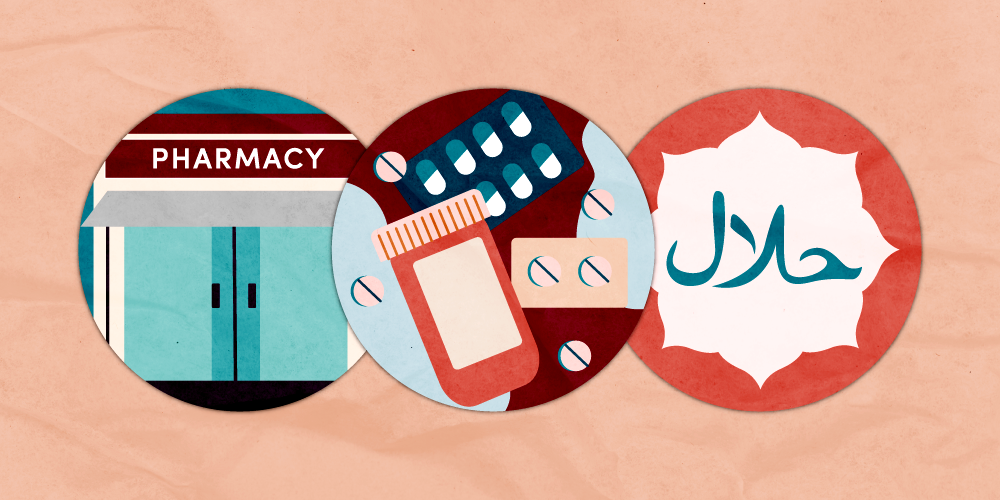part of our planning for a U West Valley campus, we've been engaging with community partners and residents for the last year and a half. One of the topics we kept hearing was around Halal – a set of dietary rules followed by Muslims. The feedback around food was straightforward, and our nutrition care serves have started working on Halal food options for both West Valley and our existing facilities.
We heard that residents want and expect us to understand how to be culturally responsive regarding the religious rules of diverse faiths, and they wanted us to consider not just food but also pharmaceuticals.
What is Halal?
Halal is an Arabic term that means "permissible" or "lawful" in accordance with Islamic principles and practices.
In the context of food, beverages and pharmaceuticals, halal refers to items that are prepared, processed, and manufactured in a manner consistent with Islamic dietary laws.
These laws prohibit the consumption of certain substances, such as pork and its by-products, alcohol, and meat from animals that have not been slaughtered according to specific ritual requirements.
Developing a practical plan
Our pharmacy team rallied around this feedback, and we started a learning process to understand what we could do to meet this need. We formed a group and started researching.
We developed a plan that included a flag within the electronic health record to alert pharmacists to respond directly to patients who requested Halal meals. The idea was that if we knew which patients followed Halal, we could be culturally responsive and personalized in how we discussed medicines. We found through our research that drug manufacturers aren’t required to disclose inactive ingredients of drugs, so it would be really challenging to identify which products had unacceptable ingredients. There are no pharmaceutical companies that meet Halal standards.
While we couldn’t achieve exactly what the community feedback indicated, we were proud of our plan. We thought - this is a process we can work out. We can educate our providers and our pharmacists. We’ll demonstrate that we’re responsive to feedback and to our community.
Back to community for more insight
We took our plan back to the Al-Huda Islamic Center, a mosque in Salt Lake City and met with Kadar Gedi and Abdulkhaliq Barbaar. After we discussed training materials for pharmacists counseling on this topic, they paused and said…please don’t do this.
They explained that the Qur’anThe Quran is the Holy Book or the Scripture of the Muslims. has guidelines around life-saving actions. If its prescribed by the doctor for health reasons, or to save life, they should take the drug. Kadar and Abdulkhaliq were concerned that if we talked to patients about every drug that's dispensed, who may have requested Halal food, it may have unintended consequences, like the patient delaying a medication or not even taking it. It can be more nuanced for things like supplements and vitamins. Vitamins may not always have the same life-saving properties as prescribed drugs, but can have a benefit to the individual. Kadar and Abdulkhaliq recommended for vitamins that the individual try to find a brand that doesn’t have Haram components like gelatin, even if it’s more costly than a generic vitamin brand.
Their recommendation–educate our teams about Halal so they understand what is important to patients and their families, and that they know available resources. If patients have specific questions, they can always go to their spiritual leader.
Building trust starts with knowing each other
It is so important to co-develop interventions, especially when you're designing for specific communities. If an intervention is focused on specific need for a community - communities of color, faith communities–we need to include individuals with lived experience in our design. We don't know the right answer as a health system. The people who are closest to the issue have the best insight.
Having the conversation with the local faith leaders built trust. It opens dialogue so that community members aren’t just interacting with one community engagement liaison (RyLee). They now have relationships and have built trust with the pharmacy team. Trust goes both ways - if the Imams (religious leaders) have a question from a member of their congregation, now they know people within our pharmacy team. When the pharmacy team has a complicated question around Halal, they can go to the Imams.
Getting to know and building trust between individuals is how people trust an entire system.
RyLee Curtis
Caitlyn Blake
David ElHalta
Director of community engagement RyLee Curtis shares how we’re partnering with communities to build a new learning and health campus, and what we can apply now, even before construction starts
Acknowledging and respecting cultural holidays has become an essential aspect of fostering inclusivity and strengthening employee engagement. U of U Health Hospitals and Clinics Chief Operating Officer Gina Hawley shares valuable insights on how leaders can navigate conversations about cultural holidays and create a supportive environment for their team members.
Asian Americans face unique types of racism and discrimination that can make them feel invisible and out-of-place within our workspaces. By acknowledging this racism, we can take the first step to creating a more inclusive environment.
